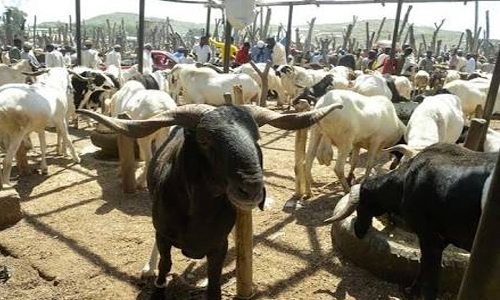Boko Haram cattle rustling prompts market shut-down in Nigeria
Madiguri : The Borno state government in northeast Nigeria has suspended trading in four cattle markets to prevent the sale of stolen livestock to raise funds for Boko Haram Islamists.
Governor Kashim Shettima said "all trading activities have been suspended until further notice in line with (the) government commitment to ensure that no public place is turned into an avenue for funding activities of the terrorists".
The affected markets are in the towns of Gamboru, Dusuman, Shuwarin and Ngom all outside the provincial capital Maiduguri.
Sales of dried meat such as "kilishi" -- a popular delicacy in northern Nigeria made from roasted thin strips of spiced beef, lamb or goat -- have also been banned, he added on Friday.
A military counter-offensive that began last year has recaptured territory lost to Boko Haram in Borno and two neighbouring states and the government in Abuja believes the group is "technically" defeated.
Hit-and-run raids on remote villages in the mainly agricultural region -- a trademark tactic of the group -- have increasingly seen Boko Haram fighters make off with cattle and foodstuffs.
The army says it has cut off the rebels' supply lines, making it difficult for them to source food, fuel for vehicles and weapons. Some raids have been carried out on foot or even on bicycle.
Shettima told a meeting of cattle traders that security officials have reported the markets were being used by unscrupulous middlemen to sell stolen livestock in raids at inflated prices.
"The money realised from such transactions will then be channelled to fund the deadly activities of the terrorists," Shettima said.
Maiduguri's cattle market has previously been shut for similar reasons, leading to a shortage of meat in the city and a public outcry.
Imports of cattle into Maiduguri have been banned for the next two weeks and only licenced cattletraders and butchers were allowed to bring in livestock, slaughter and sell meat, the governor added.
Related Posts

